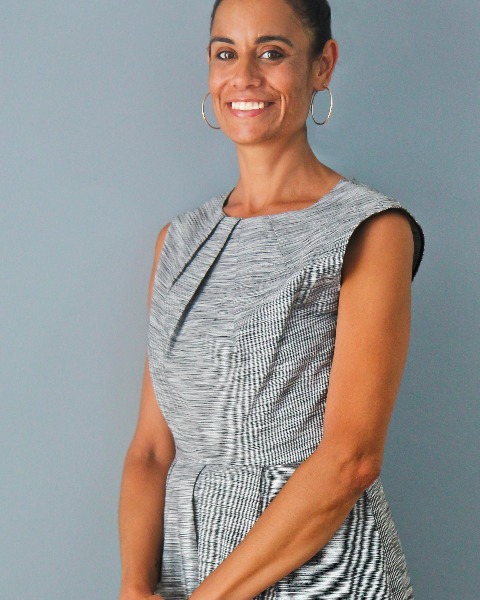Back
Latina / Latino Issues
Deconstructing the Racialized Latinx Experience in Practice and the Classroom
Saturday, November 12, 2022
1:15 PM – 2:15 PM
Location: Avila B

Dr. Laura Quiros, PhD LMSW
Associate Professor
Montclair State University
Montclair, New Jersey, United States- BA
Beverly Araujo Dawson, PhD, MSW
Professor
Adelphi University
Garden City, New York, United States
Main Presenter(s)
Co-Presenter(s)
Overview: This workshop highlights the need for trauma-informed and brave spaces in the classroom and within clinical settings to engage in dialogues about racialized experiences among Latinx. As a profession grounded in a social justice mission, it is our responsibility to embrace the nuanced and lived experiences of this diverse community.Proposal text: The social construction of race in the United States, and internationally, constricts how Latinx identify racially and culturally and affects well-being. The destructive conceptualization of race impacts darker-skinned Latinx in multiple domains of their lives including interactions with family members and in the classroom (Quiros & Araujo Dawson, 2013). Existing studies highlight that Latinx encounter different racialized experiences such as discrimination and microaggressions based on country of origin, language, skin color, and other phenotypical features (Araujo & Borrell, 2006). A review of 22 research studies reported that AfroLatinx experiences with racialization contribute to worse mental health and health outcomes compared to “white” passing Latinx (Cuevas et al., 2016).
Race also impacts the ways in which Latinx are taught in the classroom and engage in practice. For example, the conflation of race and culture is normative and perpetuated in the classroom and in practice. As a result, assumptions are made based on appearance rather than honoring curiosity and for example, asking individuals how they identify. Learning how to engage with one another from a place of humility, vulnerability and compassion allow for dialogue around the complexity of identity. Being trauma-responsive in the classroom and in practice is having an awareness of everyday oppressions that individuals from racialized and marginalized identities face, and being responsive to how these traumas are recreated within the classroom and practice. Interactions within the classroom and practice present the opportunity to create brave learning spaces where the complexity of this demographic is named and where Latinx can find solace and build community (Love, 2013).
Given the role that race plays in the lives of darker-skinned Latinx, educators and practitioners must consider skin color variations among Latinx and the subsequent impact on well-being. The conflation of identity and dismissing discussions about race cause further harm, perpetuate intergenerational trauma, and do not align with the social justice mission of social work. Therefore, this workshop will focus on the experiences that impact racially diverse Latinx and the pedagogical and practice implications.
During this workshop, the facilitators provide an overview of the literature on the racialized experiences of Latinx, as well as the impact on mental health and health outcomes. Facilitators will also equip participants with strategies for engaging in socially just practice in and out of the classroom. Furthermore, participants will have the opportunity to share and explore their existing knowledge and experiences working with Latinx, name their bias, and ability to facilitate critical conversations through social justice and trauma-informed lens. The exercises included in this workshop will positively impact participants’ teaching and practice.
Race also impacts the ways in which Latinx are taught in the classroom and engage in practice. For example, the conflation of race and culture is normative and perpetuated in the classroom and in practice. As a result, assumptions are made based on appearance rather than honoring curiosity and for example, asking individuals how they identify. Learning how to engage with one another from a place of humility, vulnerability and compassion allow for dialogue around the complexity of identity. Being trauma-responsive in the classroom and in practice is having an awareness of everyday oppressions that individuals from racialized and marginalized identities face, and being responsive to how these traumas are recreated within the classroom and practice. Interactions within the classroom and practice present the opportunity to create brave learning spaces where the complexity of this demographic is named and where Latinx can find solace and build community (Love, 2013).
Given the role that race plays in the lives of darker-skinned Latinx, educators and practitioners must consider skin color variations among Latinx and the subsequent impact on well-being. The conflation of identity and dismissing discussions about race cause further harm, perpetuate intergenerational trauma, and do not align with the social justice mission of social work. Therefore, this workshop will focus on the experiences that impact racially diverse Latinx and the pedagogical and practice implications.
During this workshop, the facilitators provide an overview of the literature on the racialized experiences of Latinx, as well as the impact on mental health and health outcomes. Facilitators will also equip participants with strategies for engaging in socially just practice in and out of the classroom. Furthermore, participants will have the opportunity to share and explore their existing knowledge and experiences working with Latinx, name their bias, and ability to facilitate critical conversations through social justice and trauma-informed lens. The exercises included in this workshop will positively impact participants’ teaching and practice.
Learning Objectives:
- Upon completion, the participant will have developed a more holistic understanding of the complexity of the racialized Latinx experience.
- Upon completion, the participant will be able to apply the tools to establish trauma-informed and brave spaces in practice and the classroom.
- Upon completion, the participant will be able to demonstrate how to use themselves more intentionally and sincerely connect with clients and help them move through obstacles.
